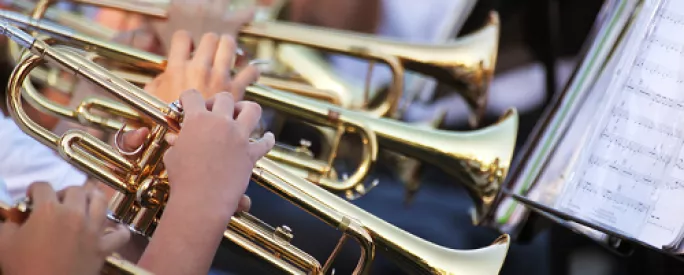GCSE and A-level music given ‘significant’ retune after complaints
Plans for new music GCSEs and A-levels are being changed to ensure that pupils study a diverse range of works, after a campaign from musicians and academics.
More than 95 per cent of responses to a Department for Education (DfE) consultation on the proposed content for the new exams described it as “inappropriate”, it was revealed today as the government published its latest decisions on qualification reform.
The DfE says it will now change the music GCSE to include “a new requirement for students to analyse unfamiliar music”.
A revised definition of Western classical music has been included for both the new GCSE, AS- and A-levels with the date range extended from 1700-1900 to 1650-1910.
Exam boards are also being given the option to include a “small amount” of classical music written outside of those dates.
The DfE said the majority of responses were part of a campaign from the Incorporated Society of Musicians (ISM) and the National Association for Music in Higher Education, which were concerned that the study of music would be restricted to the 18th and 19th centuries.
The government said respondents were mistaken in interpreting the subject content as limiting GCSE music teaching to classical music.
But it has agreed to scrap suggested minimum lengths for performing and composing in the exams after fears were raised that minimum time periods could simply lead to students creating and performing works at a very slow pace.
Deborah Annetts, ISM chief executive said the society was “delighted” by the changes.
“This is a significant reform of GCSE music and a huge opportunity for practical music-making in the classroom,” she said.
“The new GCSE will be required to encourage students to engage critically and creatively with a wide range of music. The broadening of the scope of GCSE music is welcome.”
For the new PE GCSE, the government has decided that pupils will be assessed in three rather than two activities, including at least one team sport and one individual sport.
The list of sports for GCSE, AS- and A-level PE has been expanded to include rugby sevens and indoor climbing.
Less than a quarter of respondents thought subject content proposed for new the modern foreign language AS- and A-levels was “appropriate”. There were also concerns that planned changes could reduce interest in languages and depress student numbers.
Just 24 per cent of respondents were happy with planned changes to maths A-level content, with calls for more statistics and mechanics and concerns about the inflexibility of subject content, it has also emerged.
In response to concerns that the new maths A-level is “too large”, “decision mathematics” has been taken out and added to the further maths A-level.
The new maths A-level will be taught from September 2017 and the music, PE and modern foreign language exams from September 2016.
Other qualifications with final subject content published today include GCSEs, AS- and A-levels in dance and art and design.
Education secretary Nicky Morgan said: “Today we are sending a clear message that arts education can be every bit as rigorous as the rest of the school curriculum. These subjects can lead to creative and rewarding careers in everything from engineering and design to our emerging digital industries.”
Also published today is the subject content for the new GCSE in computer science, being introduced from 2016, which will teach pupils how to write code, design programs and cover cyber-security and the ethical and legal aspects of digital technology.
Related stories:
GCSE reform: What it will mean for your school - 3 April 2014
Heads warn of ‘enormous pressure’ as even more GCSE and A-level changes are revealed - 9 April 2014
Keep reading for just £1 per month
You've reached your limit of free articles this month. Subscribe for £1 per month for three months and get:
- Unlimited access to all Tes magazine content
- Exclusive subscriber-only stories
- Award-winning email newsletters




